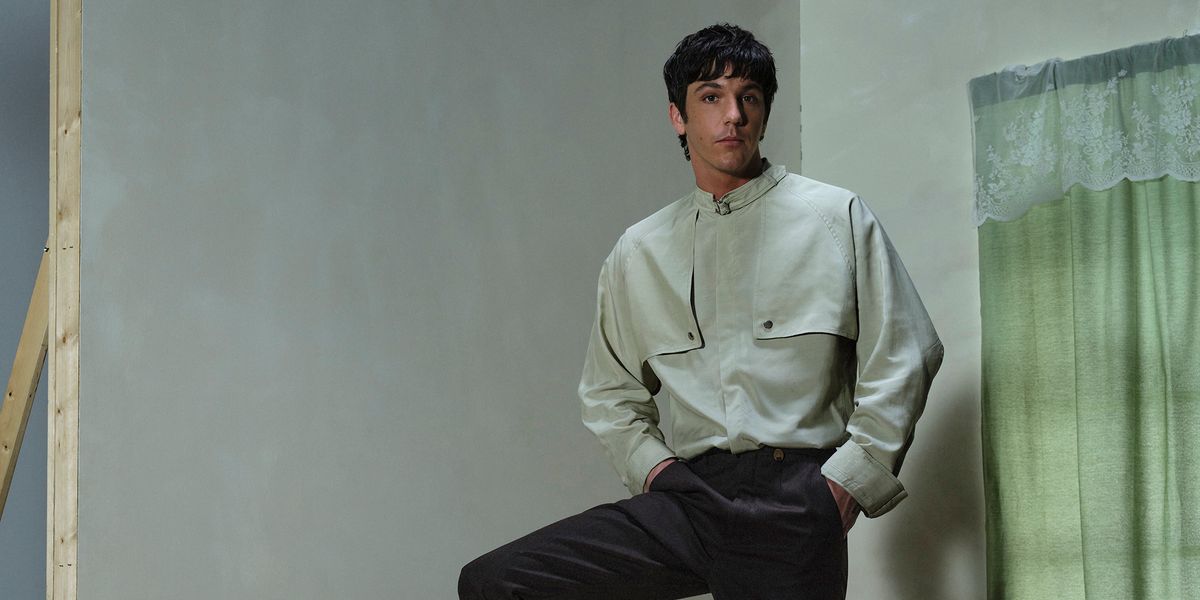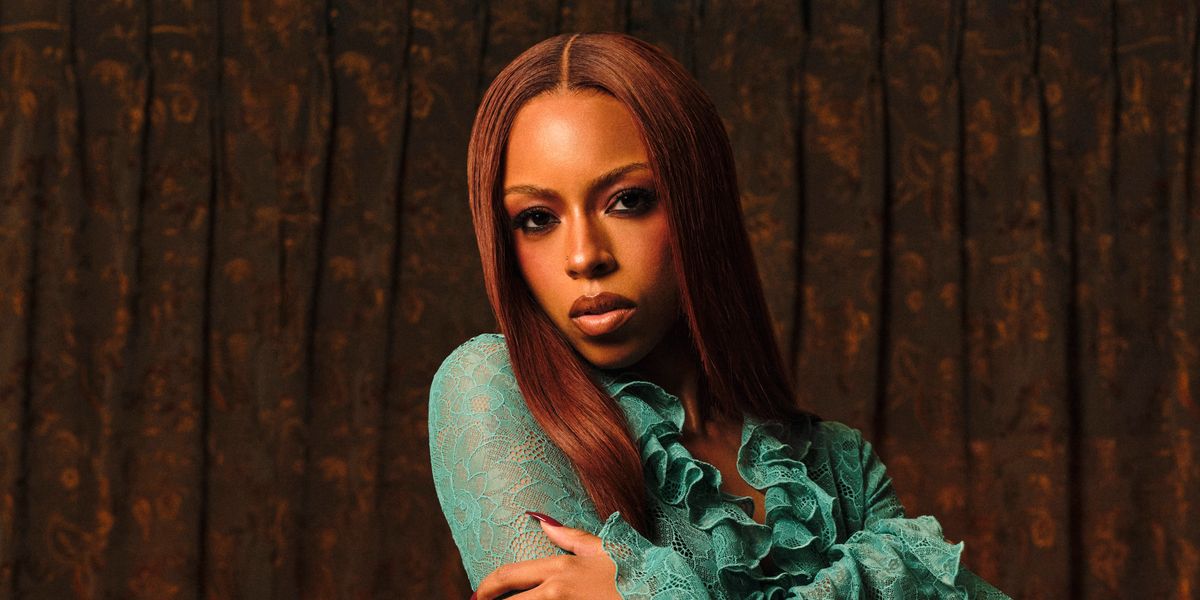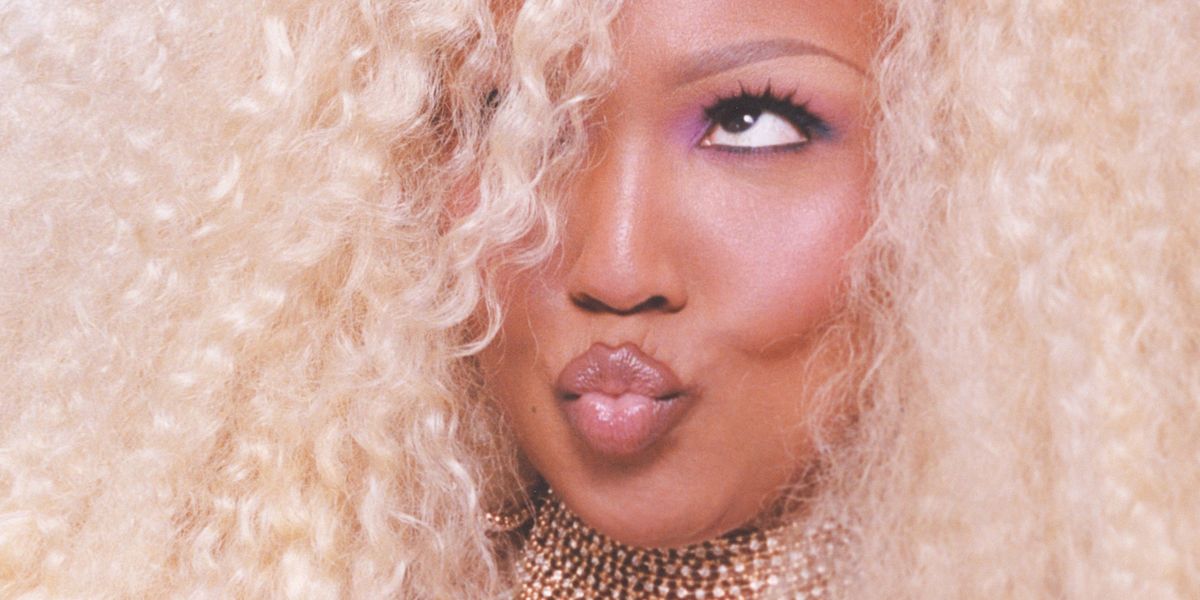
Meet the Queer Black Activist Holding Ed Buck Accountable
Sep 26, 2019
Since 2017, activists have demanded justice for Timothy Dean (55) and Gemmel Moore (26), two Black men who died in the West Hollywood home of prominent Democratic donor Ed Buck. Multiple reports allege that Buck had a history of luring Black men to his home, where he would reportedly inject them with crystal meth for sexual gratification.
On July 27, 2017, Moore, who worked as an escort, was the first of two men to die in Buck's home. Paramedics reportedly found Moore nude on a mattress in Buck's living room with "male pornography movie playing on the television," according to a Los Angeles County coroner's report. Ed Winter, a spokesperson for the coroner's office, said Buck was inside his home at the time of Moore's death and that drug paraphernalia was recovered from the scene. According to the Los Angeles Times, police reportedly uncovered sex toys, 24 syringes, five glass pipes, and a plastic straw with drug-usage residue, and "clear plastic bags with suspected methamphetamine in a tool box roll-cabinet in the living room."
Following a year-long investigation by the LA County Sherriff's Department, Buck was officially not charged in connection with Moore's death, which was ruled accidental. When Dean was found dead in Buck's home this January, a coalition of 50 civil-rights organizations put pressure on officials to investigate the death and ultimately charge Buck.
In February, Moore's mother LaTisha Nixon, filed a wrongful death lawsuit in California Superior Court against Buck, Los Angeles District Attorney Jackie Lacey, the assistant district attorney and others. Finally, on September 17, when a 37-year-old man survived an overdose after being injected by Buck, he was arrested and charged with three counts of battery causing serious injury, distributing methamphetamine resulting in death, and maintaining a drug house.
In a federal court filing last week, prosecutors claim Buck has reportedly exploited at least 10 men, offering them drugs, sex, and money. If convicted of the federal charge, Buck could face a mandatory minimum sentence of 20 years in federal prison to a maximum sentence of life without parole.
When the news first broke about Moore's death, Los Angeles-based activist Jasmyne Cannick was one of those leading the charge to hold Buck accountable. In July 2018, after Moore's death was determined an accident, she wrote on Twitter: "If another young, Black gay man overdoses or worse dies at Democratic donor Ed Buck's apartment it's going to be the fault of the sheriff's dept and L.A. District Atty for not stopping him when they had the opportunity to."
Set Heru, a New York artist/activist, is another name voicing dissent against Ed Buck's crimes. Last year, he began posting art on his Instagram inspired by his relationship to the men who died under Buck's watch. While Heru did not know them personally, his lived experience as a young, queer Black man and former sex worker in recovery from crystal meth addiction catalyzed his activism.
He got involved with an established online campaign through the website Justice4Gemmel.org, ultimately aimed at providing assistance to the legal experts and relatives pursuing justice for Moore. Heru also created shirts reading, "Justice For Gemmel Moore, Fuck Ed Buck, Justice for Timothy Dean," and handed them out during the Queer Liberation March on NYC's World Pride weekend. In doing so, Heru established contact with Moore's mother and Dean's sister, and has constantly given voice to the intersectional issues at play in the Ed Buck case: that of systemic injustice against queer Black and Brown bodies, when the perpetrator is a white man using his connections and power to prey on their vulnerability.
PAPER caught up with Heru after Buck's arrest to discuss, among the above issues, how his journey in sobriety motivated him to seek justice for those who have been in similar situations.
How did you first get drawn to this case?
I started following it back in May 2018. I was down in Florida and I made some art about the crystal meth epidemic, and I dedicated the piece to Gemmel Moore. His mom contacted me and was like, "I really appreciate what you're doing, more people need to talk about it." At the time it was crazy because I think I was nine months sober [the first time around, before relapsing]. I was in this place where I was making noise about it back then, but I was doing it in a passive way. I was like, "I'm going to make these pictures and I want people to think about what they think crystal meth looks like."
When I came back from my relapse in December, I learned about Timothy Dean a month later. I was outraged that nobody was talking about it. I was going to these CMA [Crystal Meth Anonymous] meetings at The Center and I wasn't hearing about it. I thought that this a place where people should be feeling some kind of way because this is the community this whole mess happened within, but that wasn't the case. At first I wanted to protest in front of the Center to move them to act against Ed Buck. I was going to get two of my big, hot, Black buff-bodied guy friends and put them in little speedos with a big ass sign that says, "Because you sexualize and fetishize our Black bodies, when we die no one hears us."
What you were noticing at the Center only strengthened your mission, I'd imagine.
I noticed that everybody white is coming into this building and getting the help they need, meanwhile, Black communities are disadvantaged because they don't have the community or the resources. It's no shade to the Center, but the institution symbolizes a place where white men are able to go get their mental health treatment, their addiction treatment, all of this money going into their programs for, what seems like the queer community, in my opinion, it's mostly benefiting white queer community. There's no larger system in place to help get queer Black and Brown men off the streets when they're on drugs, and I wish there was, just all around. White gay men who use crystal meth are able to do it for longer and have less consequences than Black men. Because of that disproportionality, white men can then prey upon Black men in these situations. Crystal meth was not a drug Black men did until it came to the inner cities. It came to the party scene back in the '80s, and it's still a thing where if you are a gay Black man in the party scene, you probably aren't smoking crystal meth unless it is supplied from the outside. I knew I had to do something.
Related | You Have the Right to Be Loved: Nessa
Many think that Gemmel Moore wound up in the situation he did in part because of systemic oppression of disenfranchised people, and also because he was vulnerable and lacked resources.
That's the reason why so many guys I know end up in this situation like Gemmel did. In his diary that was published, Gemmel said he never even did crystal meth. He started doing it with Ed Buck — that Ed Buck was the first person to shoot him up. And then he became addicted and then he's like, "I don't even want to do this [...] I know maybe I just want to kill myself." He's like, "I'll just allow Ed Buck to do it for me for the time being." Ed Buck is basically telling Gemmel that he's going to end up killing him, and then it ultimately happened.
I think there's so many things that could be done, definitely looking at the housing problem — mainly just starting the conversation. I reached out to places like The Center to see if we could create a larger dialogue around this issue. I thought about putting Gemmel's mother on a panel hosted there to tell her story about what it's like to lose her son to this epidemic. I wanted that conversation to be one for other mothers who lost their Black sons whether, queer or not, to drug addiction. I can't imagine what it would feel like and my Mom can't imagine what it would feel like if that had happened to me. I wanted to help Gemmel's mom find a place to tell her story, because no one even asked, or looked at how she felt or still feels.
"Even if you don't relate, this should enrage you because it is another human life completely disregarded."
You said you see yourself in men like Dean and Moore, but especially with Moore because you're closer in age. Can you talk more about that?
Absolutely, and that's why I was so enraged. That was literally my experience, being in powerful, rich, white men's homes doing drugs that they gave me. It wasn't all the time that I wanted to, it's because I had no other choice. I had no place to stay, I didn't have access to resources that could improve my situation. If I could go on Grindr and get a date and have a place to stay at night, that was my only goal. If there were drugs involved, that was even better. But there were a lot of times when I didn't even want to, and that's what connected me so much to these guys. It enraged me that people that said they cared about me, wanted the best for me, and they couldn't see the relationship and connection between me and those guys. I am Gemmel Moore. I just didn't have the same fate and the same outcome, luckily and praise to God, I was able to get out of it.
Then, too, is this idea that these men weren't loved. I came from a home where my mom loved me, Gemmel's mother loves him. Black boys and men are loved. Queer Black boys and men are loved. I just want to let people know that even if that hasn't been your experience and you didn't walk down that path, maybe you know someone who is. Even if you don't relate, this should enrage you because it is another human life completely disregarded. That was my whole premise for wanting to rally and bring awareness. I don't know if it's going to have any difference at all in the world, if people are really going to care — and some people still don't.
The Los Angeles Times acknowledged that Buck has charges against him now because of Black activists uniting to put pressure on the justice system. There were thousands of people at the Queer Liberation March, and at least a hundred that walked up to me and asked, "Who is Ed Buck?," that didn't even know who he was. We passed out the "Fuck Ed Buck" and "Meth Is Murder" shirts for free. I was putting my own money into making these shirts. I didn't make any money off of it, and the money that I did make on the shirts that we made, I gave that money directly to Moore's mother and she was able to get to LA for a hearing. So I felt good that I was able to actually do something.
Do you think there is a discrepancy in how Buck is being charged?
It's sad because the fact it took this long to bring any charges against him only highlights the disparity of how powerful men like Buck get away with stuff like this. If a Black or Brown man were distributing and administering meth to people, they'd be thrown in jail ASAP. When Mac Miller died, the DA and the LAPD instantly investigated his death, instantly charged the drug dealer who gave them the drugs. Why is it that Mac Miller's white body — and maybe it was his fame — but why is his death more significant than somebody like Gemmel Moore who was homeless and a sex worker? Why is the white body more important?
Have you been in touch with the families of the men since hearing of Buck's charges?
It does feel like a win, though sadly a third victim had to survive an overdose before anyone wanted to do anything. His mother wrote me a message yesterday saying, "He's been exposed, I'm crying tears of joy, he's due in court, Jackie [the district attorney] better do her damn job. Thanks for all you've done, here's a victory for all of us." I don't know this woman personally and I've never met her physically, and yet we have this bond that is all love.
I've been connecting with other activists, from Ashlee Marie Preston to Jasmyne Cannick; she's the person who actually got Gemmel Moore's diary published. In LA, she connected with neighbors of Ed Buck to get them to monitor him when the DA wasn't doing anything. His neighbors are the reason why that third photo surfaced. Somebody took a picture and was like, "This is not right, he hasn't stopped his behaviors." The night that Gemmel was pulled out of his house, he had another Black guy roll up to his house the same night. It was insanity to see that. If the white gay community is saying they are pro-all lives, then why don't all Black gay lives matter? Why don't Black trans lives matter? Why are you not doing more to address the homelessness and issues stemming from that facing our community?
Visit Justice4Gemmel.org, and follow Set Huru on Instagram (@gurusethuru).
Photo via Instagram
MORE ON PAPER
Music
Demi Lovato Is No Joke
Story by Ivan Guzman / Photography by Jason Renaud / Styling by Chris Horan/ Makeup by Loftjet / Set design by Allegra Peyton
Story by Ivan Guzman / Photography by Jason Renaud / Styling by Chris Horan/ Makeup by Loftjet / Set design by Allegra Peyton
15 September
Music
Role Model Isn’t In Kansas Anymore
Story by Tobias Hess / Photography by Richie Talboy / Styling by Angelina Cantú / Grooming by Jerrod Roberts / Set design by Allegra Peyton
Story by Tobias Hess / Photography by Richie Talboy / Styling by Angelina Cantú / Grooming by Jerrod Roberts / Set design by Allegra Peyton
14 August
Internet
Quen Blackwell Takes Over
Story by Ivan Guzman / Photography by Richie Talboy / Styling by Angelina Cantú / Makeup by Kimora Mulan / Hair by Malcolm Marquez / Nails by Kimmie Kyees / Set design by Allegra Peyton
Story by Ivan Guzman / Photography by Richie Talboy / Styling by Angelina Cantú / Makeup by Kimora Mulan / Hair by Malcolm Marquez / Nails by Kimmie Kyees / Set design by Allegra Peyton
11 August
Music
Ravyn Lenae Enjoys the View
Story by Erica Campbell / Photography by Richie Talboy / Styling by Angelina Cantú / Makeup by Matthew Fishman / Hair by Jacob Aaron Dillon / Nails by Kimmie Kyees / Set design by Allegra Peyton
Story by Erica Campbell / Photography by Richie Talboy / Styling by Angelina Cantú / Makeup by Matthew Fishman / Hair by Jacob Aaron Dillon / Nails by Kimmie Kyees / Set design by Allegra Peyton
04 August
Beauty
Lizzo Is Living and Loving IRL
Story by Mickey Boardman/ Photography by Williejane Dent / Styling by Wayman + Micah / Hair by Jared Henderson / Makeup by Alexx Mayo / Nails by Eri Ishizu / Set design by Allegra Peyton
Story by Mickey Boardman/ Photography by Williejane Dent / Styling by Wayman + Micah / Hair by Jared Henderson / Makeup by Alexx Mayo / Nails by Eri Ishizu / Set design by Allegra Peyton
31 July




